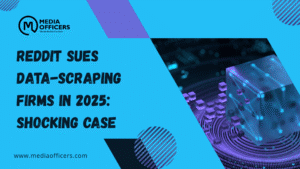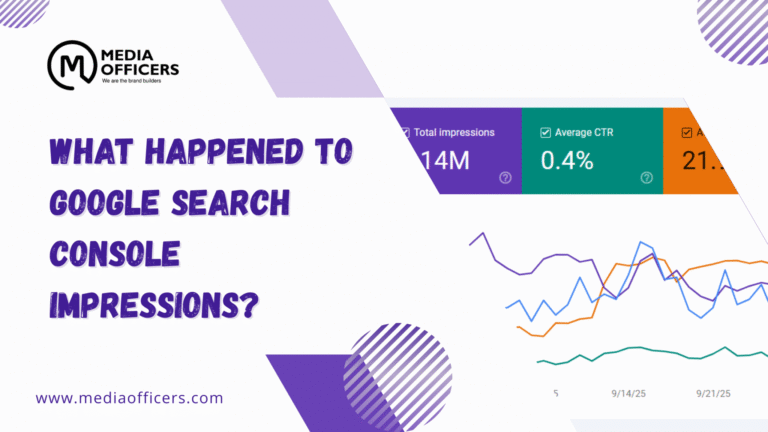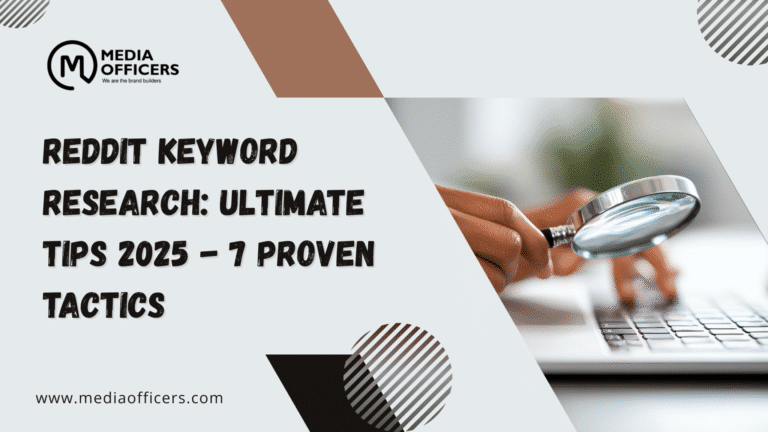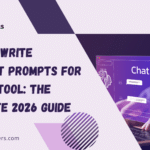Reddit Sues Data-Scraping Firms in 2025 is reshaping debates around data licensing, AI training data, and the ethics of scraped search results. In a landmark civil complaint filed in the U.S. District Court for the Southern District of New York, Reddit accuses several scraping outfits of covertly harvesting Reddit content by exploiting Google search data to power AI models. This case signals a turning point in how data, access, and ownership intersect with modern AI development.
Reddit alleges that SerpApi, Oxylabs, AWMProxy, and Perplexity “devised a scheme” to obtain Reddit data indirectly from Google search results, then resold or repurposed it to train or improve AI systems. The complaint argues these operations were deliberate, conducted at scale, and designed to obscure the entities’ identities to bypass technical restrictions. According to the filing, Reddit set what amounts to a trap an ordinary post visible only to Google’s crawler to test whether Perplexity relied on scraped data. Within hours, the post appeared in Perplexity’s search results, Reddit said, providing a persuasive signal that the company depended on Reddit content gleaned through Google searches.
In legal terms, Reddit is seeking monetary damages, a permanent injunction, and a ban on using or selling data that was scraped without proper authorization. The stakes extend beyond Reddit’s own data; critics worry the case could influence how AI developers source training data, how search engines present results, and how licensing agreements are negotiated in a market increasingly dominated by AI-driven tools.
The broader industry has watched closely because the outcome could reshape data access norms for AI research, enterprise analytics, and search-engine integration. As AI models become more capable of summarizing, ranking, and responding to queries, a ruling that tightens or clarifies permissible data uses could impact countless startups, research projects, and consumer-facing AI products that rely on SERP signals and publisher content.
Beyond the courtroom, the case intersects with ongoing conversations about zero-click results, API controls, and the economics of content licensing. If courts validate publishers’ rights to restrict data use, developers may need new licensing pathways, and SEO professionals could experience longer lag times between data requests and actionable insights. In short, the Reddit case speaks to a future in which data provenance and licensing become nonnegotiable elements of building AI-powered services and optimizing online presence.
As part of the evolving narrative, reports indicate Reddit and Google are discussing a potential partnership that would weave Reddit content more directly into Google’s AI products. If such collaboration advances, we could see more Reddit discussions surfaced in AI Overviews and other Google experiences, potentially altering how brands gain visibility and how traffic is allocated across platforms. That potential shift underscores why the current litigation matters not just for Reddit or four scraping firms, but for anyone who relies on data-driven decisions in an increasingly AI-augmented online environment.
Who is involved and what they’re accused of doing
- SerpApi: Cited as a customer of OpenAI, SerpApi is described as having accessed Reddit content via Google search results and then repackaged it for downstream use in AI systems. The complaint emphasizes the company’s role in the data chain and contends that SerpApi masked its identity to skirt restrictions.
- Oxylabs and AWMProxy: Both named participants in the indirect data scraping approach, helping to route, obfuscate, or aggregate Reddit data pulled through search platforms. Reddit asserts these firms profited from the same data stream and used technical circumvention tactics.
- Perplexity: The AI-powered search engine at the center of the allegations is accused of relying on Reddit content surfaced through Google’s search index to power its product. The “test post” incident is framed as a pivotal piece of evidence that Perplexity relied on scraped content.
Reddit’s complaint portrays a deliberate, repeatable process rather than incidental scraping. The defendants are alleged to have exploited the public nature of Google search results to assemble a data pipeline that bypassed licensing channels, created a revenue stream from training data, and diminished the value of licensed access that publishers rely on to monetize their content. The court filing frames the matter as not only a rights dispute but also a question of fair competition in a market where AI training data is a critical asset.
Why this matters for AI, SEO, and data licensing
The lawsuit sits at the intersection of AI training, data licensing, and search data access. Reddit already licenses its data to OpenAI and Google, but the complaint claims that others have attempted to sidestep these formal arrangements. If Reddit’s allegations hold, the case could reinforce the importance of licensed data and deter the growth of unlicensed scraping operations that feed modern AI models.
For search engine users and site owners, the implications are tangible. Google has tightened its scraping protections and API access in recent years, complicating how third parties retrieve search results for analytics or AI training. As a result, SEOs and content creators have faced increased difficulty in gathering reliable SERP data without violating terms or triggering anti-scraping measures. The case could accelerate policy changes that limit data access to non-licensed partners, potentially shrinking the pool of accessible signal data for SEO tools and AI research alike.
In practical terms, a ruling favorable to Reddit could spur publishers to demand clearer licensing terms and more transparent data provenance. For marketers, this could translate into a higher premium on directly licensed data sources, explicit data-use agreements, and more robust content-provenance tooling. It could also push AI vendors to invest in auditable data pipelines to demonstrate compliance and reduce the risk of litigation or regulatory scrutiny. The net effect would be a more safety-conscious ecosystem where data usage is traceable, auditable, and governed by specific terms rather than broad, ambiguous permissions.
The broader data-scraping ecosystem: players and dynamics
All four defendants operate within a larger ecosystem where data flows through multiple intermediaries before reaching AI models. Reddit’s filing contends the defendants’ approach was not casual or ad hoc; it depicted a structured pipeline designed to monetize content without proper authorization. The ecosystem includes data brokers, aggregator services, search-index intermediaries, and AI developers who seek high-signal data to improve model performance and user experiences.
Context from the wider industry underscores publishers’ concerns about data access. Cloudflare and other privacy researchers have highlighted the disparity between crawler activity and actual human traffic. For example, estimates suggest a wide gap between a site’s crawl rate and its real-user visits, illustrating why publishers may feel vulnerable when AI systems pull content through search results without explicit licensing. These dynamics matter because they shape publishers’ negotiating leverage, policy priorities, and the design of future data-sharing initiatives that balance reach with rights protection.
Implications for SEO, content strategy, and AI policy
In practical terms, the case adds urgency to a long-running conversation about data provenance for SEO analytics and AI training. If the judiciary signals that unlicensed scraping carries significant liability, SEO practitioners may shift toward built-in transparency cues and permission-based data feeds. Marketers could increasingly prioritize sources with clear licensing terms, consent-based data collection, and explicit provenance documentation to ensure compliance and long-term data reliability.
For AI policy, the lawsuit reinforces the tension between the open web’s value and content creators’ rights. As AI systems become more capable of digesting vast data troves, publishers may push for tighter licensing, more granular data-use controls, and better traceability of data origins. The result could be a more segmented landscape where certain data streams remain accessible only through licensed channels, while others are restricted or require new forms of attribution. This evolution may drive innovation in licensing models and data-tracking technologies that help developers maintain compliance without sacrificing model performance.
Beyond licensing, the case touches on the broader economics of AI-ready data. When publishers control access to their content, the cost and complexity of obtaining high-signal data rises for researchers and developers. Some players may respond by investing in in-house data generation or creating official APIs to provide safer, governed access. The ongoing tension between openness and control is likely to shape industry priorities for the next few years, influencing everything from startup funding to enterprise procurement strategies.
Historical context and key statistics
Historically, publishers have balanced commercial licensing with the practical needs of research and discovery. The rise of zero-click AI summaries and integrated search results has disrupted traditional traffic and monetization models, intensifying calls for licensing clarity. Major publishers and platforms have voiced concerns about data that powers AI models circulating without fair compensation or clear attribution. While licensing agreements exist, plaintiffs argue that the landscape is still permeated by unregulated scraping activity that undermines publisher value.
Public data on traffic patterns reinforce the gravity of the issue. Industry observers note that search engines and AI systems draw visitors in very different ways. For instance, the gap between SERP-driven traffic and crawler-based access remains substantial, underscoring why publishers are increasingly protective of how their content is used in AI products. In some analyses, Google’s role as a dominant gateway means that access to data via search results has outsized influence on traffic, rankings, and brand visibility, making licensing and data-provenance policies especially consequential for SEO health and competitive positioning.
As commentators compare data flows from Google, OpenAI, and other players, a consistent theme emerges: the most sustainable models balance useful data access with publishers’ rights and transparent licensing. The Reddit case crystallizes this tension and highlights the need for governance frameworks that can scale with AI innovation while preserving incentive structures for content creators and platform owners alike.
What this could mean for Reddit, Google, and the future of AI search
If negotiations between Reddit and Google progress toward deeper integration, we could see more Reddit content appearing directly in Google AI outputs. This development would likely reshape visibility and traffic dynamics, potentially favoring publishers with clear licensing terms. For marketers, it could mean adjusting strategies to account for AI-enabled surfaces that reflect licensed content rather than raw SERP snippets alone. In such a scenario, data provenance would become a differentiator brands that can demonstrate compliant data usage and licensed access may enjoy more predictable AI-driven exposure.
From Reddit’s perspective, a well-structured licensing framework could unlock predictable monetization, better control over how content is used in AI, and greater confidence that the data ecosystem respects creators. For Google, formalizing licensing relationships could streamline the deployment of AI features while reducing legal and compliance risks. The broader market would then transition toward standardized terms for data access, licensing durations, attribution requirements, and enforcement mechanisms an environment that benefits both publishers and developers when implemented with clarity and enforceability.
Frequently Asked Questions
What is the core allegation in Reddit Sues Data-Scraping Firms in 2025?
Reddit Sues Data-Scraping Firms in 2025 centers on the claim that SerpApi, Oxylabs, AWMProxy, and Perplexity scraped Reddit content by exploiting Google search results, then repurposed or sold the data to train AI models without proper authorization. The complaint argues the defendants concealed their identities and operated at industrial scale to bypass licensing and restrictions.
How could this affect SEO data and AI training today?
The case highlights rising concerns about data provenance and licensing in AI training and SEO analytics. If the court sides with Reddit, it could accelerate demand for clearly licensed data sources, push for more transparent data provenance tooling, and encourage the development of API-based data feeds with explicit terms. In practical terms, marketers may see more robust licensing requirements and greater emphasis on consent-based data collection as part of standard operating procedures.
What role do OpenAI and Google play in this landscape?
The allegations reference data flows linked to OpenAI and the broader licensing environment for AI training data. Google’s position as a key intermediary in how search results surface content makes it a focal point for policy and enforcement. The outcome could influence whether publishers grant access to content, under what terms, and how data used for AI training is tracked and attributed.
What happens next in the legal process?
Typically, civil cases move through filings, motions, discovery, and potential settlements or trial. The court will assess the legality of scraping practices, the enforceability of licensing agreements, and the magnitude of any damages. Regardless of the outcome, the lawsuit signals that publishers will increasingly scrutinize data-use practices, and AI developers may need more transparent data provenance disclosures to minimize legal risk and maintain trust.
Conclusion
Reddit Sues Data-Scraping Firms in 2025 marks a pivotal moment in the intersection of data rights, AI training, and search-engine policy. Whether you are a marketer tracking SERP signals, a publisher guarding your content, or a developer building AI products, the core takeaway is clear: data provenance, licensing, and transparent usage rules are becoming nonnegotiable elements of a sustainable AI and SEO strategy.
As the legal process unfolds, expect greater emphasis on licensing frameworks, API-based data access, and rigorous compliance practices that protect publishers while enabling responsible AI innovation. The industry should anticipate more robust standards for data provenance, more explicit licensing terms, and an ongoing reassessment of how data flows power AI-driven experiences and how those flows are governed in the open web ecosystem.








